_URBAN RYTHYM
01.SAIL PEN
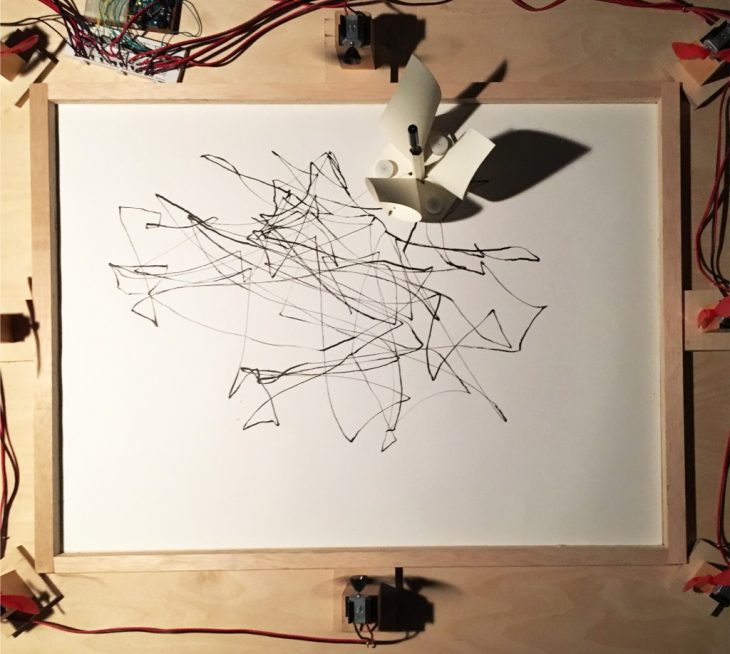
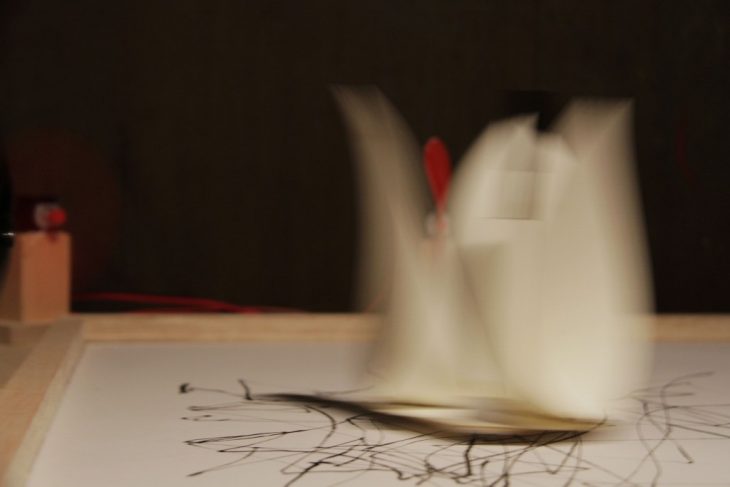
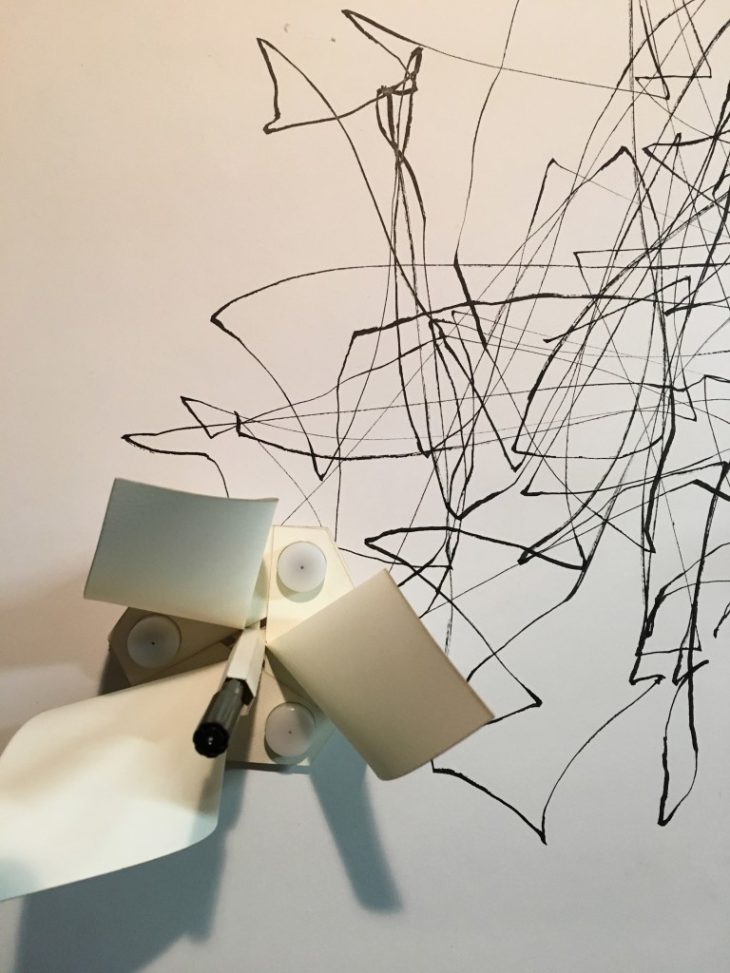
02. ZAP ZOOPER
“The Zap-Zooper” is a drawing machine that uses sound waves to draw and creates different line types through different frequencies. This machine is a tool for mapping based on the attractor and repellent points in public space.
“The Kid” is the agent of the Zap-Zooper. He responses to the sound frequencies that come from the speaker and behaves through different parameters. These are Frequency, Volume, Pen Holder Geometry, Material.
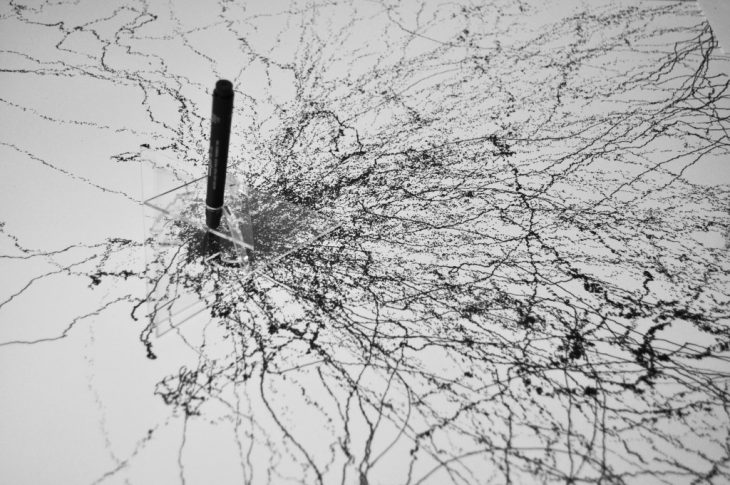
Speaker is located in the center of the board and there are some vibration dampers between the aluminium sheet and the sub-woofer box. With this dampers, there are two more parameters coming in to the calculation which are slope and non-vibrating spots.
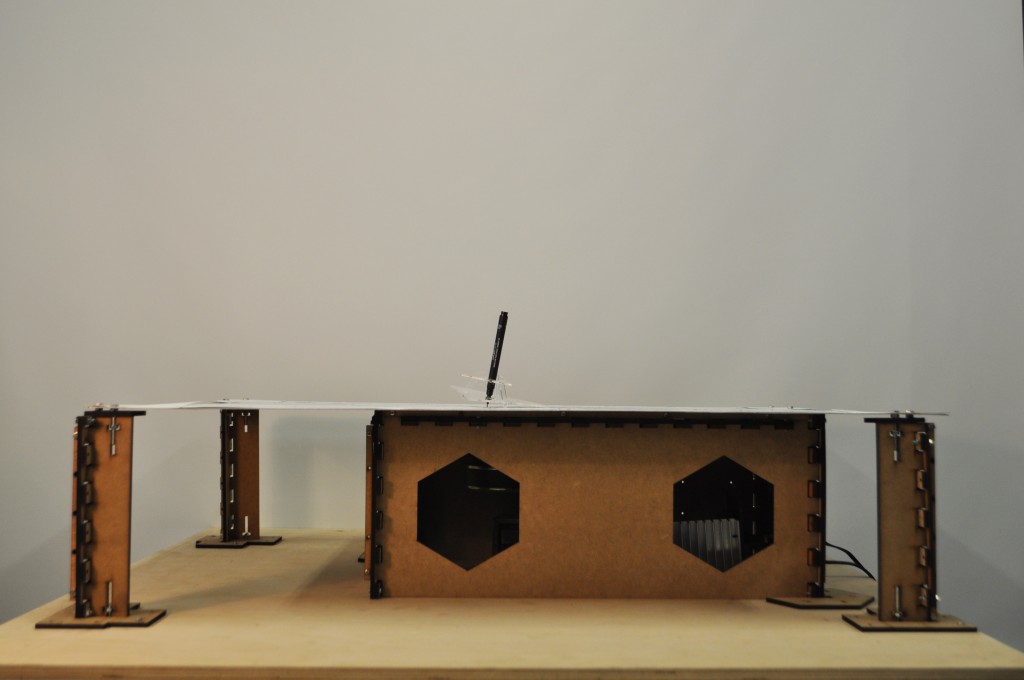
The Kid is trying to go to non vibrating points but at the same time trying to avoid them because of the slope. So this drawing is a result of that war between the slope and the vibration.
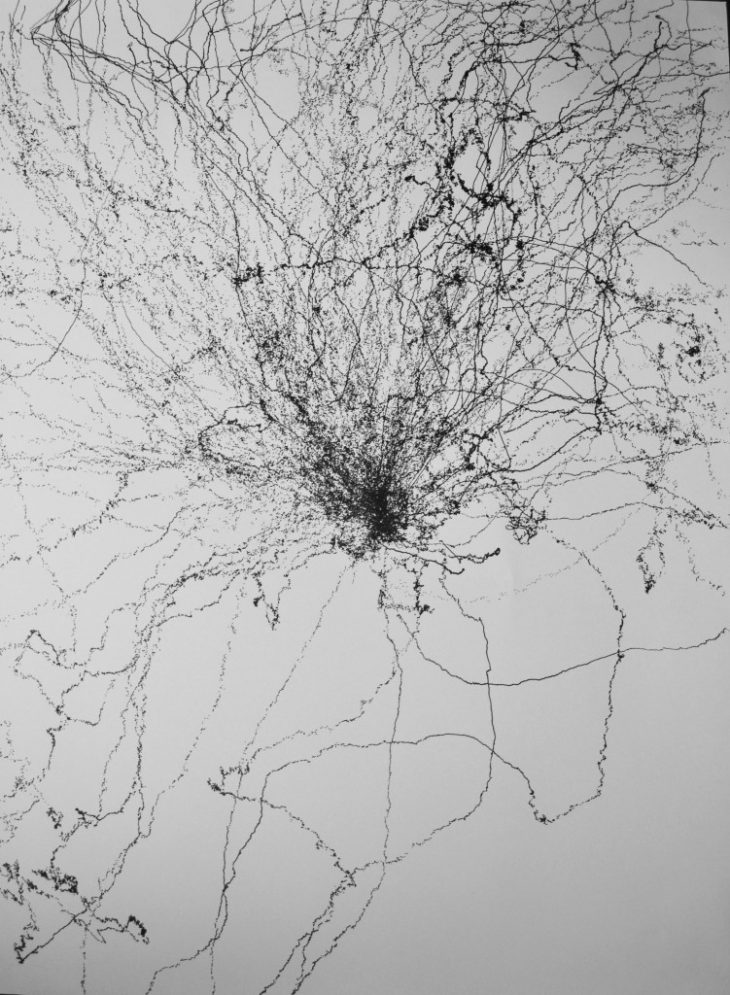
03.URBAN INTERVENTION
The removal of cars from certain streets in Barcelona with the Superblocks project leaves the squares to the pedestrians as a void, a space without designated functions and circulation. The square formed at the junction of Carrer de Sicilia and Carrer de la Industria, which has the institutional/educational significance from the existing high school, primary school and kindergarten. An undefined circulation path can lead to many problems.
The project aims to handle the issue by mapping the possible paths of school kids, to and from the school, also taking into account of the public. The positive space emerging from the paths, the children’s define the boundaries of different types of circulation from different location on the block which leaves behind negative spaces which are static, as opposed to the dynamic circulation paths. These negative spaces can be used as public gathering points, which in architectural terms can be simplified into an interactive music park that is defined by the students entry and exit, (to and from respectively) from the schools.
The activated areas acts like an attactor point where in the data of the students daily inflow and outflow are taken into consideration from the three input points which being the high school, primary school and the kindergarten defining it through the urban intervention and creativing event spaces. The event spaces can propose a new spots for interaction and socializing through the experience of being a street musician.
It is intended to change the way the street musicians, children as well as the adults interchange ideas or conversation while offering urban instruments to public as an urban intervention.
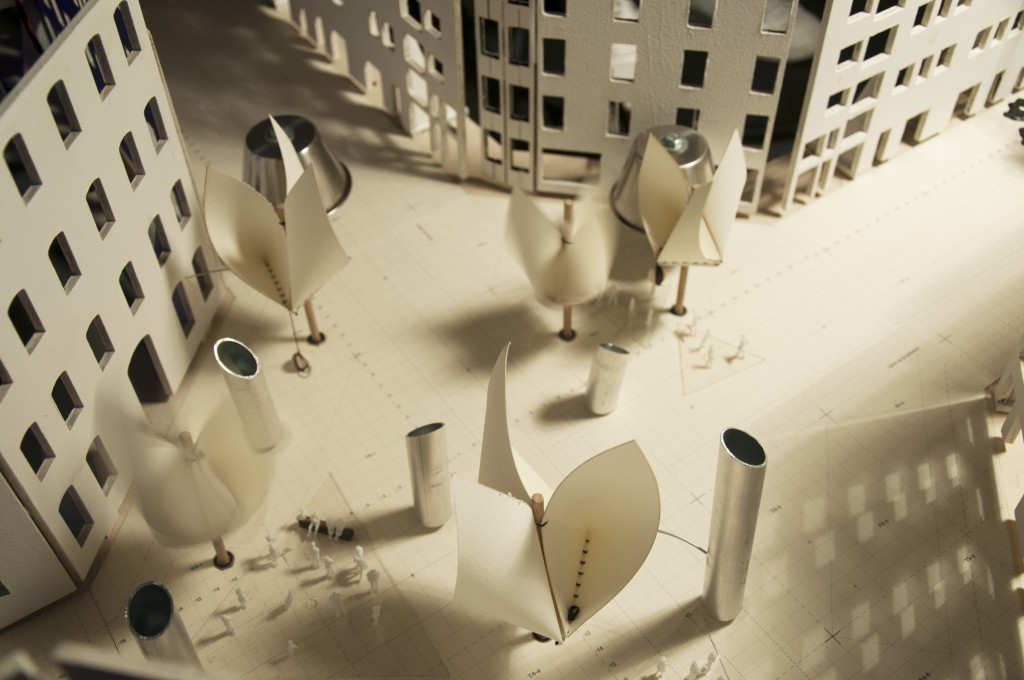
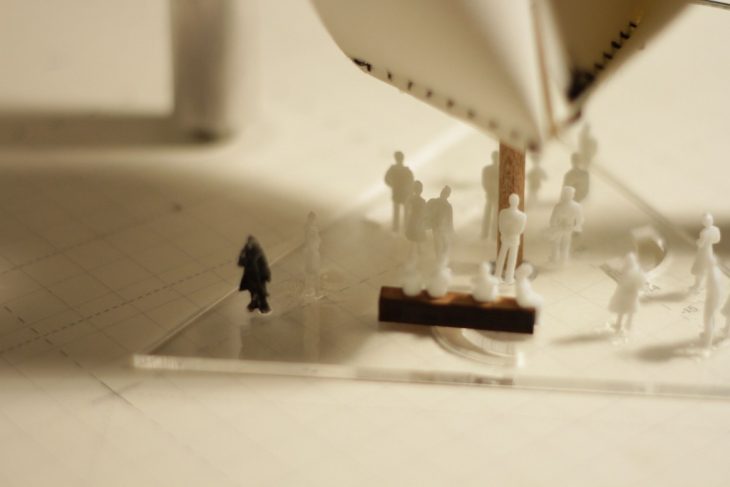
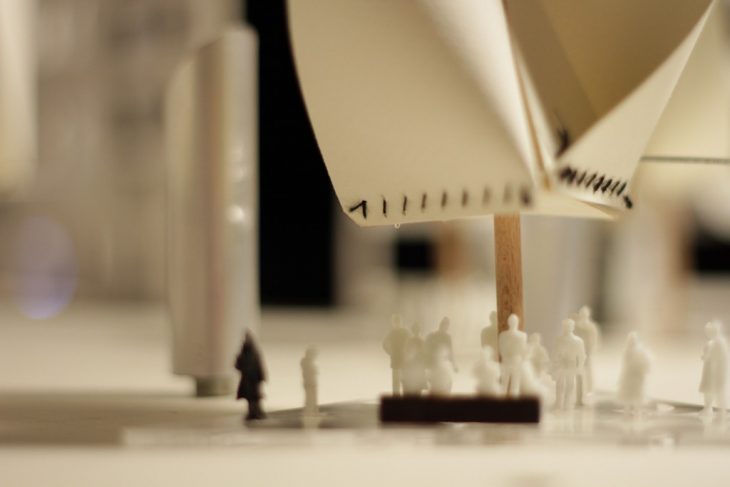
URBAN RYTHYM is a project of IAAC, Institute for Advanced Architecture of Catalonia developed at Introductory studio of Masters of Advanced Architecture in 2016,
by Aishwarya Hokrani and Mehmet Bostanci, Cagan Izgi and Rasheed Basheer.
Course directed by Edouard Cabay and assisted by Rodrigo Aguirre